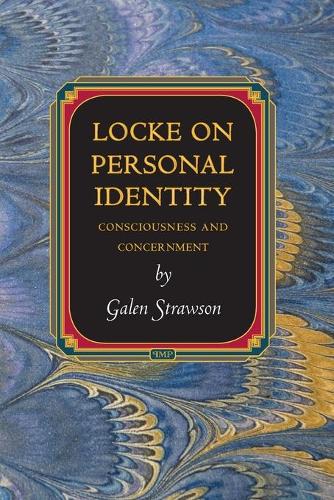
Locke on Personal Identity: Consciousness and Concernment - Updated Edition
(Paperback, Updated Edition)
Available Formats
Publishing Details
Locke on Personal Identity: Consciousness and Concernment - Updated Edition
By (Author) Galen Strawson
Preface by Galen Strawson
Princeton University Press
Princeton University Press
30th September 2014
Updated Edition
United States
Classifications
Tertiary Education
Non Fiction
192
Physical Properties
Paperback
280
Width 140mm, Height 216mm
312g
Description
John Locke's theory of personal identity underlies all modern discussion of the nature of persons and selves--yet it is widely thought to be wrong. In this book, Galen Strawson argues that in fact it is Locke's critics who are wrong, and that the famous objections to his theory are invalid. Indeed, far from refuting Locke, they illustrate his fundamental point. Strawson argues that the root error is to take Locke's use of the word "person" as merely a term for a standard persisting thing, like "human being." In actuality, Locke uses "person" primarily as a forensic or legal term geared specifically to questions about praise and blame, punishment and reward. This point is familiar to some philosophers, but its full consequences have not been worked out, partly because of a further error about what Locke means by the word "conscious." When Locke claims that your personal identity is a matter of the actions that you are conscious of, he means the actions that you experience as your own in some fundamental and immediate manner. Clearly and vigorously argued, this is an important contribution both to the history of philosophy and to the contemporary philosophy of personal identity.
Reviews
"[E]legant and provocative... There is no denying that the case he makes in this short but compelling book is a powerful one."--Barry Dainton, Times Literary Supplement "This book will appeal to Locke scholars and those interested in Locke's account of personal identity."--Choice
Author Bio
Galen Strawson is professor of philosophy at the University of Texas at Austin. His many books include "Freedom and Belief" and "Selves: An Essay in Revisionary Metaphysics".
